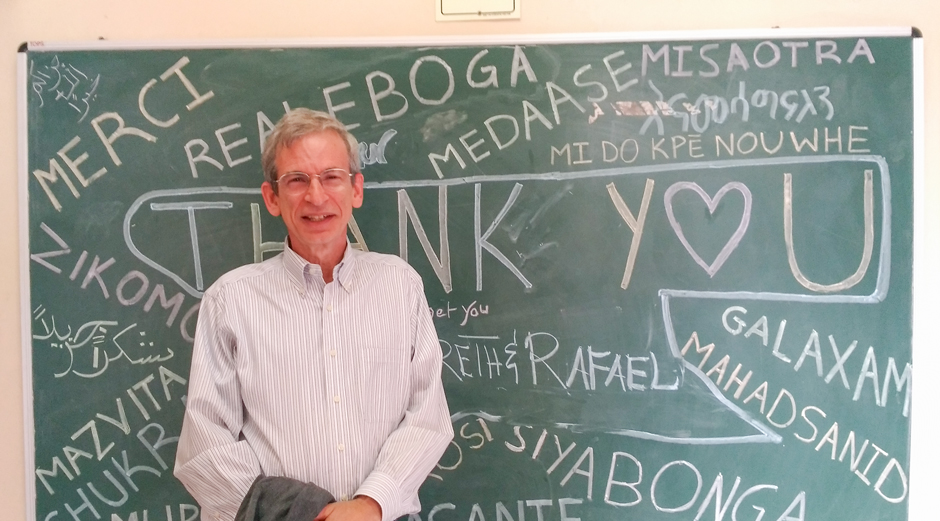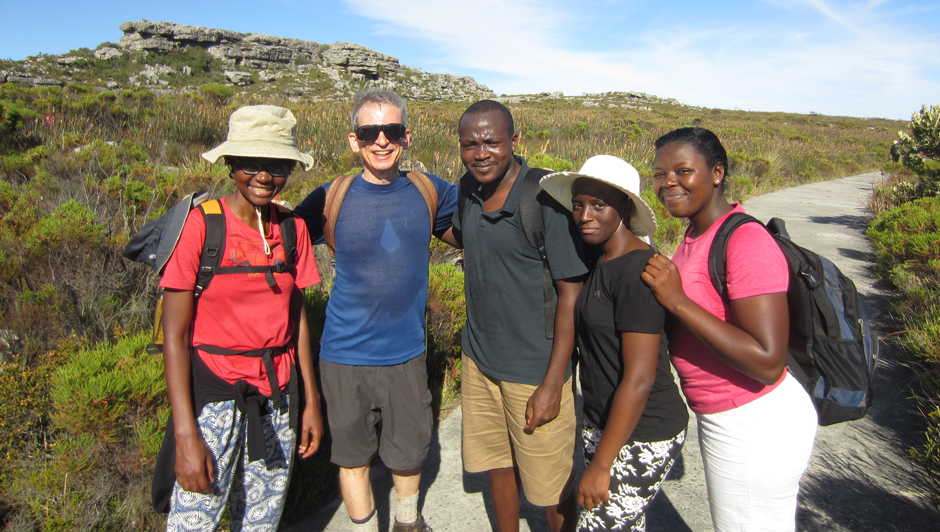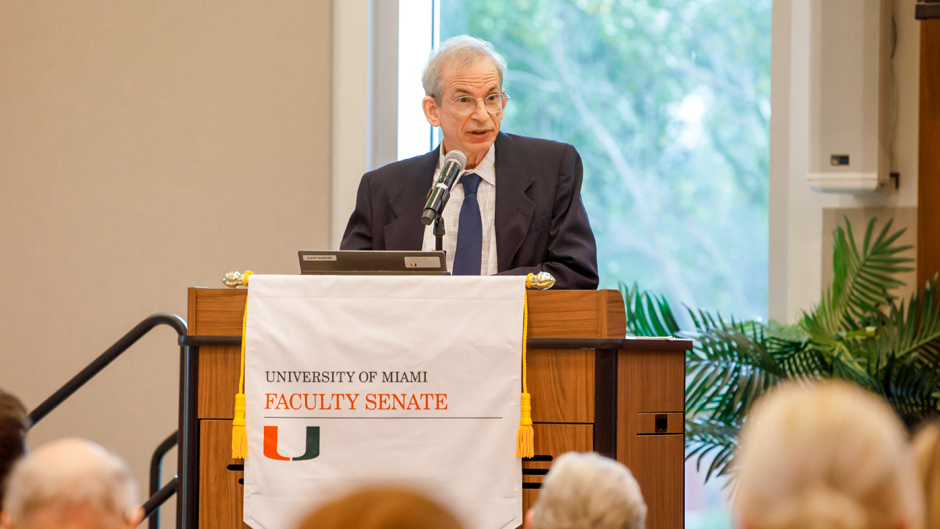Rafael Nepomechie was but a curious second grader when he first experienced what would become his lifelong fascination with the world of physics. He had read of 16th-century astronomer Galileo Galilei’s experiment dropping weights off the Leaning Tower of Pisa.
“I’m not sure that he really did that experiment, but Galileo found a formula which tells you how far a dropped mass will fall in a given amount of time,” Nepomechie said. “I remember seeing that formula for the first time, and the fact that you could describe nature by a formula amazed me.”
Nepomechie, a physics professor in the College of Arts and Sciences, has taught at the University of Miami since 1986. This year he received the 2023–2024 Outstanding Teaching Award from the Faculty Senate for his exceptional contributions to student learning and growth.
He’s no less fascinated today with the study of matter than he was as a second grader.
“Still today I find it so striking that you can describe things in nature by math,” he said. “It’s remarkable that nature works like that, and to understand that nature works in this way gives you a perspective about the world that everybody should have at least to some extent.”

Nepomechie has taught 17 different courses at the University across all levels of the curriculum, which have received many positive reviews from students. He has been praised for being accessible during office hours and for making difficult concepts easy to understand. Notably, his introduction of a new course on quantum computing has been described by undergraduate and graduate students alike as a "life-changing experience."
In Nepomechie’s teaching award nomination letter, George Alexandrakis, distinguished professor emeritus, highlighted his colleague’s “innate talent, meticulous preparation, and dedication to his students' learning and intellectual growth.”
While he humbly appreciated the accolades, Nepomechie put “enthusiasm” atop the list for teaching excellence.
Trusting that energy has proved integral to his own academic development. As a beginning doctoral student at the University of Chicago, he took a course on advanced quantum mechanics from Peter Freund.
“Every day we were learning something new, and the excitement he had for the subject was really contagious,” Nepomechie remembered. “He wasn’t the most famous faculty on staff, but I immediately said ‘okay, he’s the one I want to study and work with’—and I did. He became my doctoral advisor.”
Nearly 15 years ago, Nepomechie was approached by a friend to join him for a teaching stint in South Africa at the African Institute for Mathematical Sciences (AIMS). Students from all over Africa receive scholarships to attend AIMS. Since his first visit to AIMS, Nepomechie has returned once a year or every other year for a three-week teaching block—and the experience never ceases to recharge his enthusiasm.
“What’s unique is that you’re living with the students, sharing meals and interacting on a first-name basis. The students there are so motivated and that makes it exciting. Working with them in such an intense way is a tremendous opportunity,” he explained.

His experience there imparted a valuable teaching lesson.
“I had been teaching at AIMS a few times, teaching quantum integrability, the subject of my own research at the time,” he recalled. “But I began to have some misgivings—it just felt like the material was obscure and not very useful to students in Africa.”
So Nepomechie set about learning about quantum computing, an area that he sensed would be more relevant to the students. He even made it the focus of his own research and has brought the subject into much of his teaching at the University with excellent success.
At the University, he constantly updates his curriculum to keep the interest level high both for himself and his students—especially for those in his intro classes who likely have limited background in the sciences.
“So, it’s a challenge to try to communicate some science to them, but often they are curious about the world around them. It’s actually fun,” he said.
In recent years for a Physical Science 101 course that he’s taught multiple times, he uses the text “Physics and Technology for Future Presidents” to convey essential concepts. As a theorist, Nepomechie doesn’t do experiments, yet, to engage the nonscientists in his classes, he regularly conducts them to demonstrate physical principles.
Among his favorites is one where he places a Stirling engine atop a chunk of ice cream to demonstrate that temperature differences can produce “work.” The difference in temperature between the ice cream and the surrounding air “fuels” the engine to run.
“It seems that the engine is running off the ice cream, but it’s actually running from the heat in the room. It’s a simple demonstration, but it really works to demonstrate the principle,” he said.
Cuban-born, Nepomechie gave up an academic opportunity to remain in Seattle, Washington, to come to Miami and the University. His parents, sister, and wife’s family were all living here. His mother, Esther Adouth Nepomechie, in fact, earned a doctorate from the University for her 1993 philosophy dissertation on “Skepticism: An overview.”
He’s grateful for the many opportunities the University has afforded him and appreciative of the recent teaching award—in many ways a reflection of his fascination with the world of physics and the enthusiasm he strives to share with his students.
“I love physics. For me it’s the most interesting thing that there is. It doesn’t get old for me,” Nepomechie said. “The teachers who I look back on with the greatest joy are the ones who made me excited.”

